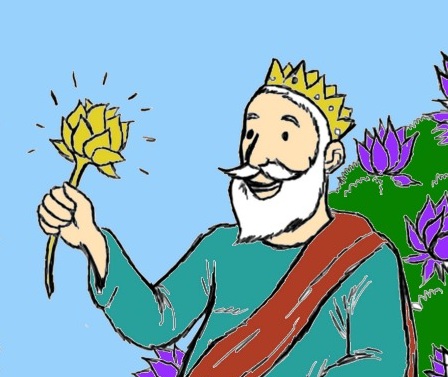At length Midas had become so exceedingly foolish that he could scarcely bear to see or touch any object that was not gold. He made it his custom, therefore, to pass a large part of every day in a dark and dreary apartment, underground in the basement of his palace. It was here that he kept his wealth. To this dreary hole — for it was little better than a dungeon—Midas betook himself whenever he wanted to be particularly happy. Here, after carefully locking the door, he would take a bag of gold coin, or a gold cup as big as a washbowl, or a heavy golden bar, or a peck-measure of gold-dust, and bring them from the dark corners of the room into the one bright and narrow sunbeam that fell from the narrow window. He valued the sunbeam for no other reason but that his treasure would not shine without its help. And then would he count the coins in the bag; toss up the bar, and catch it as it came down; sift the golddust through his fingers; look at the funny image of his own face in the polished surface of the cup; and whisper to himself, “O Midas, rich King Midas, what a happy man art thou!”













